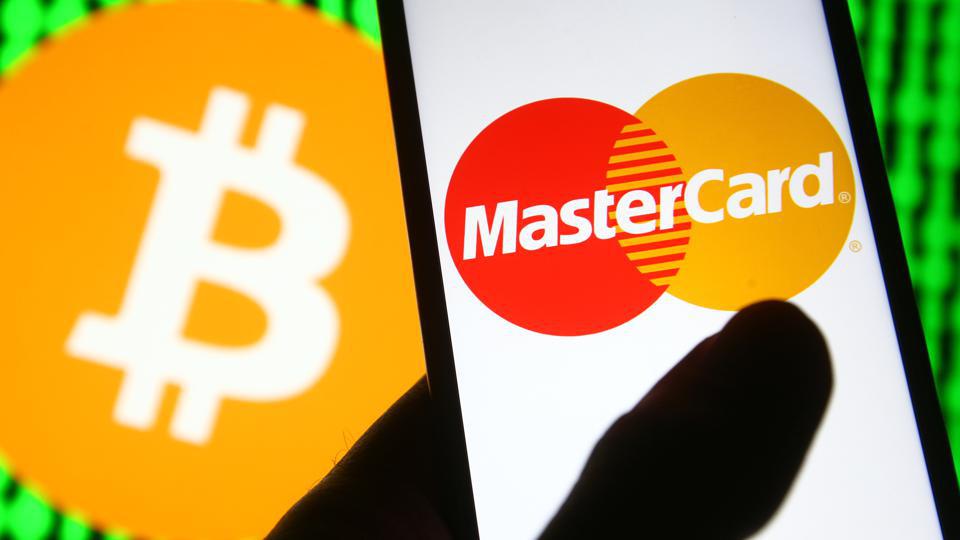Crypto
The Ultimate Beginner’s Guide to Crypto Investing

There are currently over 18,000 different cryptocurrencies available.
With the world of crypto growing so fast, more people are investing every day. Crypto has presented an opportunity for a lot of people to improve their financial situation, and if you want to get started, it’s important to know the first steps you should take.
For a rundown on crypto investing for beginners, keep reading.
Buying Crypto
The first thing you need to know as a cryptocurrency investor is how to buy crypto. There are many online exchanges you can use to do this. The first thing you need to do is pick an exchange that you want to use – note that some people use multiple for various reasons.
With an exchange, you’ll need to create an account. This will involve providing certain details, and some require ID for verification. Once your set up you can start buying crypto, and different exchanges provide various methods of doing this, such as credit/debit card payments, bank transfers, and p2p trading.
You can buy NuCypher, Bitcoin, Ethereum, Cardano, and other cryptos from one of the many exchanges available, then it’s generally a good idea to transfer it to a wallet to keep it secure. You can use either a soft wallet or a hard wallet depending on which you prefer.
Benefits of Crypto Investing
Many people believe cryptocurrencies are the future and will replace traditional currencies. By getting involved now, you can understand how it all works and start building your finances early.
The decentralized blockchain technology that crypto uses is widely supported. It essentially means that the currency is in control of the people that use it, rather than being managed by governments or financial institutions.
Bitcoin was created in 2009, and many of the early adopters have made huge amounts of money. One of the main reasons people invest in crypto is for the potential to increase their wealth.
This is entirely possible, just be cautious as it’s also possible to make significant losses. Do some research into any crypto before investing to make sure it’s a good choice for you.
Best Practices for Crypto Investing
Any experienced crypto investor knows that there are risks involved. To minimize risks in crypto trading, there are several things you can do.
Watch out for scams. Don’t click any links that you’re not certain of, and never send anyone details like passwords or seed phrases.
Whenever you’re thinking about investing in a cryptocurrency, don’t just blindly listen to others. Always DYOR (do your own research) so you know what you’re investing in.
Don’t panic if you make losses. Almost everyone does at some point or another – it’s just a part of investing. The best thing to do when this happens is to look at how it happened and learn from it.
The Future of Crypto Investing
Over the last decade, the use of crypto has grown massively, and it’s showing no signs of slowing down. Crypto investing has a huge amount of potential, and the sooner you start learning and getting involved, the better position you’ll be in. Just ensure you take the proper precautions, and get a good understanding of what you’re investing in.
For more crypto articles, check out some of our other blog posts.
Crypto
The Crucial Role of FINPR in the Cryptocurrency Market: Amplifying Voices, Building Brands


In the rapidly evolving landscape of cryptocurrency and Web3 technologies, effective communication and strategic PR play a pivotal role in shaping narratives, building trust, and fostering adoption. Amidst this dynamic environment, FINPR emerges as a vital ally for projects seeking to navigate the complexities of the crypto market. With its extensive network, industry expertise, and proven track record, FINPR stands as a beacon of support for brands aiming to make their mark in the crypto sphere.
Amplifying Voices: Leveraging Global Media Connections
FINPR’s value proposition lies in its unparalleled network of contacts within the crypto ecosystem. With connections spanning leading crypto publishers, influencers, and media outlets, FINPR ensures that your story reaches not just any audience but the right audience. By leveraging these global media connections, FINPR secures organic coverage that amplifies your brand’s voice, fostering widespread visibility and engagement.
Understanding the Language, Embracing the Vision
Effective communication requires more than just conveying information. It demands a deep understanding of the industry’s language, culture, and vision. Herein lies another key strength of FINPR: its team’s immersion in the cryptocurrency and Web3 sector.
With a profound grasp of industry intricacies, FINPR’s professionals speak the language of crypto enthusiasts and stakeholders alike, ensuring that your message resonates authentically with your target audience. By aligning with your vision, FINPR crafts PR strategies that not only inform but also inspire, driving meaningful connections and fostering community engagement.
Proven Expertise, Notable Partnerships
With over seven years of experience in the industry, FINPR boasts a rich history of collaboration with prominent names in the crypto space. From Polkadex to Klaytn, AscendEX to Lbank, FINPR has partnered with a diverse array of clients, spanning various sectors within the cryptocurrency market.
This extensive portfolio underscores FINPR’s proven expertise in delivering results-driven PR solutions that propel brands to new heights. Moreover, the recognition received from major agencies such as Coincodex, Coinpedia, Bitcoinist, and International Business Times further solidifies FINPR’s standing as a trusted partner in the crypto PR landscape.
Tailored Strategies, Competitive Pricing
One size does not fit all in the world of PR, especially in the ever-evolving realm of cryptocurrency. Recognizing this, FINPR takes a personalized approach to crafting PR strategies, tailoring each plan to meet the unique needs and objectives of its clients.
Whether it’s building brand awareness, launching a new product, or executing a crowdfunding campaign, FINPR develops customized solutions that deliver tangible results. Moreover, with competitive pricing and secure financial terms, FINPR ensures that its services remain accessible to companies of all sizes, democratizing access to high-quality PR support within the crypto market.
Specialized Solutions for Crypto Fundraising
Beyond traditional PR and marketing services, FINPR specializes in providing crowdfunding PR and marketing solutions for a range of crypto fundraising mechanisms, including DeFi, IDO, IEO, STO, DAO, ICO, GameFi, and P2E. Leveraging its expertise in these areas, FINPR empowers projects to navigate the complexities of fundraising campaigns, maximize investor engagement, and drive token adoption. Whether it’s orchestrating a successful token sale or executing a strategic marketing blitz, FINPR equips brands with the tools and insights needed to thrive in the competitive world of crypto fundraising.
Conclusion
In the ever-expanding universe of cryptocurrency, effective PR and strategic communication are indispensable for brands aiming to carve out their niche and foster sustainable growth. As a trusted partner in the crypto PR landscape, FINPR plays a pivotal role in amplifying voices, building brands, and driving meaningful connections within the global crypto community. With its extensive network, industry expertise, and tailored solutions, FINPR stands ready to empower brands to thrive in the fast-paced world of cryptocurrency and Web3 technologies.
Crypto
Sell Bitcoin (BTC) to Visa and MasterCard TRY card


It is not possible to transfer Credit card in Turkish Lira to Bitcoin directly; you should use the help of an intermediary. The most convenient way to carry out the transaction is to cooperate with online exchangers. These resources offer favorable terms of cooperation, assistance from qualified technical support specialists and prompt processing of customer requests.
You should not search for a performer via the Internet, this can be fraught with loss of time and money. There are many scammers on the Global Network who are trying with all their might to lure the money of naive users and appropriate it for themselves. To avoid troubles and speed up the process of choosing the best offer, you should use the proven monitoring resource BestChange.
The portal bestchange.com/bitcoin-to-visa-mastercard-try.html publishes reliable exchange resources that offer sell Bitcoin (BTC) to Visa and MasterCard TRY card quickly and easily. All published exchangers have received many positive reviews from clients and have proven honest work. Working with such services will be easy and safe. You only need to choose a reliable service provider with optimal conditions for the transaction.
Features of choosing an exchange service for conducting a financial transaction
When choosing a suitable service provider for transferring Credit card to BitCoin cryptocurrency, it is important to pay attention to several key aspects:
- Exchange rate. Exchange rates may vary among different exchange platforms due to the fees they charge. Therefore, it is worth comparing different offers and choosing the most profitable one.
- Availability of cryptocurrency reserves. Before making an exchange, make sure that the exchanger you choose has enough Bitcoin to complete your trade in the required amount.
- Amount restrictions. Check if there are restrictions on the minimum or maximum exchange amount. This may influence your choice of platform.
- Additional commissions. Research any additional fees that may be applied to your trade, as they can significantly impact the profitability of the exchange.
- Technical support. Check for 24/7 technical support. If problems arise, it is important to be able to get help and answers to questions.
- Bonus program. If you plan on making frequent trades, find out if there is a frequent flyer bonus program that will allow you to earn extra bonuses on every trade.
To easily compare different offers and choose the best option, you can use the BestChange aggregator. On the resource bestchange.com you can search for rating of exchange websites in order to choose the most advantageous offer and conduct an exchange with confidence in its safety. Make informed choices when exchanging cryptocurrencies.
How to conduct a financial transaction
After choosing the best offer on the BestChange online exchanger, you should go to its official website to carry out the transaction. There you will see preset options for asset conversion, including source and target currency, which are usually configured automatically.
Next, fill out the application form with the following required information:
- The amount of Turkish Lira that you intend to exchange for the Bitcoin cryptocurrency.
- Details of your cryptocurrency wallet.
- Your name and contact details.
Before submitting an exchange application, be sure to check the correctness of the specified data to avoid possible errors and typos. After this, make payment for the application within the established deadlines, as failure to meet the deadlines may lead to cancellation of the application.
After successful payment, all you have to do is wait for your cryptocurrency wallet to be replenished, which usually takes from 30 to 60 minutes. Once the funds are credited to your balance, the exchange operation will be considered successfully completed.
Cooperation with verified exchangers on the instagram.com/bestchange/ monitoring portal guarantees you the safety, simplicity and profitability of exchange operations.
Crypto
All Forex Trading Indicators Guide in 2023: A Comprehensive Overview


In the fast-paced world of forex trading, staying ahead of market trends is crucial for making informed decisions and achieving success. To accomplish this, traders rely on a wide array of forex trading indicators that provide valuable insights into price movements, trend direction, and potential entry and exit points. This comprehensive guide explores the essential forex trading indicators that are set to shape the foreign exchange markets in 2023, including the Acceleration/Deceleration Oscillator (AC).
1. Moving Averages:
Moving averages are fundamental tools used by traders to identify trends, support, and resistance levels. The Simple Moving Average (SMA) and Exponential Moving Average (EMA) are two common types used for assessing market momentum and smoothing price data.
2. Relative Strength Index (RSI):
The Relative Strength Index (RSI) measures the speed and change of price movements, indicating overbought and oversold conditions. Traders use RSI to spot potential reversals and confirm the strength of a trend.
3. Moving Average Convergence Divergence (MACD):
MACD is a versatile indicator that provides insights into trend direction and momentum. By analyzing the MACD line, signal line, and histogram, traders can identify crossovers and divergence signals for potential trade opportunities.
4. Bollinger Bands:
Bollinger Bands consist of three lines: the middle (SMA), upper, and lower bands. These bands help traders gauge market volatility and identify potential breakouts or reversals when price moves beyond the bands.
5. Fibonacci Retracement:
Fibonacci retracement levels help traders identify potential support and resistance levels based on key price retracement levels. These levels are drawn from the Fibonacci sequence and are widely used for setting price targets and stop-loss levels.
6. Stochastic Oscillator:
The Stochastic Oscillator assesses overbought and oversold market conditions, providing valuable insights into potential reversals. By comparing current prices to a range of prices over time, traders can gauge momentum and make more informed trading decisions.
7. Parabolic SAR:
The Parabolic SAR is a trend-following indicator that helps traders set trailing stop-loss levels. It appears as dots above or below price charts, signaling potential trend reversals when dots switch sides.
8. Average True Range (ATR):
ATR measures market volatility, helping traders set appropriate stop-loss levels and assess position size based on current market conditions. High ATR values indicate increased volatility, while low values suggest calmer market conditions.
9. Ichimoku Cloud:
The Ichimoku Cloud is a comprehensive indicator that provides a holistic view of price movements. It includes five components that collectively offer insights into trend direction, support and resistance levels, and potential breakout areas.
10. Acceleration/Deceleration Oscillator (AC):
The Acceleration/Deceleration Oscillator or simply Accelerator Oscillator (AC) is a unique forex trading indicator designed to reveal the acceleration or deceleration of a price trend. Developed by Bill Williams, the AC is an essential component of his Alligator Indicator system.
Acceleration/Deceleration Oscillator (AC): Unveiling Trend Acceleration
The Acceleration/Deceleration Oscillator (AC) is a valuable tool that complements the Alligator Indicator system developed by renowned trader and author Bill Williams. It plays a crucial role in revealing the acceleration or deceleration of a trend, providing traders with key insights into market momentum.
How the AC Works:
The AC measures the difference between the Awesome Oscillator (AO) and a 5-period Simple Moving Average (SMA) applied to the AO. The Awesome Oscillator, another indicator devised by Bill Williams, assesses the momentum of a market trend by comparing the 5-period Simple Moving Averages of the median prices of two consecutive bars.
Interpreting the AC:
When the Acceleration/Deceleration Oscillator is above the zero line, it signals an acceleration of the current trend, indicating an increase in momentum. Conversely, when the AC is below the zero line, it suggests a deceleration of the trend, with momentum declining.
Confirmation with Other Indicators:
For stronger trade signals, traders often combine the AC with other indicators, such as the Alligator Indicator and the Awesome Oscillator. Convergence of signals from multiple indicators can lead to higher probability trade setups.
Using AC for Trend Reversals:
The AC can help traders identify potential trend reversals when it forms divergences with price movements. Bullish divergences occur when the price forms lower lows, while the AC prints higher lows, indicating a possible upward reversal. Similarly, bearish divergences signal potential downward reversals.
Setting Stop-Loss and Take-Profit Levels:
Traders can use the AC to set appropriate stop-loss and take-profit levels, ensuring better risk management in their trades. Tightening stop-loss levels when the AC shows deceleration can protect profits, while setting take-profit levels during acceleration periods can maximize gains.
Conclusion
As the forex market continues to evolve in 2023, traders must equip themselves with a wide range of indicators to gain a competitive edge. The Acceleration/Deceleration Oscillator (AC) stands as an essential tool for unveiling trend acceleration and deceleration, empowering traders to make more informed and profitable trading decisions. By incorporating the AC into a comprehensive trading strategy, traders can better navigate the dynamic foreign exchange markets and achieve success in their forex trading journey.
-



 Biography5 years ago
Biography5 years agoJacqulyn Elizabeth Hanley is the Mother of Liza Soberano?
-



 Home4 years ago
Home4 years agoEpson L3110 Driver Free Download Latest Updated Version
-



 Games3 years ago
Games3 years agoBest Free To Play MMORPG To Try This 2021
-



 Biography5 years ago
Biography5 years agoAmanda Levy Mckeehan Biography, Family, Net Worth, Age, Affairs, Facts
-



 Biography5 years ago
Biography5 years agoWho is Rose Dorothy Dauriac? Scarlett Johansson Daughter?
-



 Biography5 years ago
Biography5 years agoJessica Ditzel Secret Information that Nobody Knows | Joe Rogan’s Wife
-



 Biography5 years ago
Biography5 years agoWhat is the relation of Nathaniel Larry Osorno with Liza Soberano?
-



 Home5 years ago
Home5 years agoLiza Soberano Biography, Age, Family and Boyfriends































